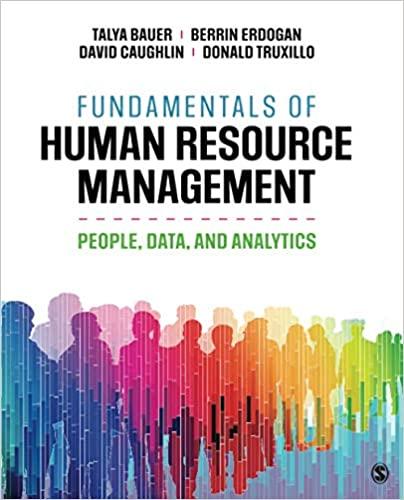Throughout this book, we show the importance of ethics and integrity to the practice of HR. A
Question:
Throughout this book, we show the importance of ethics and integrity to the practice of HR. A key factor is to make ethical behavior an explicit part of the job analysis, competency model, and job description. In other words, the essential role of job analysis and competency modeling makes them important for communicating the values of ethics and integrity to the organization’s employees. Putting ethics and integrity explicitly into a job analysis (e.g., including a KSAO related to ethics; including a competency on integrity) also lets people know that these are needed to get ahead in the organization. In this way, the value of ethical behavior will be echoed throughout the other HR functions, including recruitment, selection, training, and performance management.
There are a number of examples of how ethics can be incorporated into the job analysis process. For example, the O*NET framework published by the U.S. Department of Labor includes integrity as one of its work styles.
SHRM’s competency model includes ethical practice as one of its core competencies; these also include integrity, courage, and professionalism.
Including employee ethics in describing the job requirements should increase the odds of recruiting and hiring ethical workers, as well as rewarding ethical behavior.
Questions
1. Do you see ethics and integrity as personal qualities of an employee, or can they also be characteristics of an organization?
2. Give an example of how would you define ethics as a KSAO in a job analysis.
3. Give some examples of events in the news involving ethics or integrity in an organization.
Step by Step Answer:

Fundamentals Of Human Resource Management People Data And Analytics
ISBN: 9781544377728
1st Edition
Authors: Talya Bauer, Berrin Erdogan, David E. Caughlin, Donald M. Truxillo





